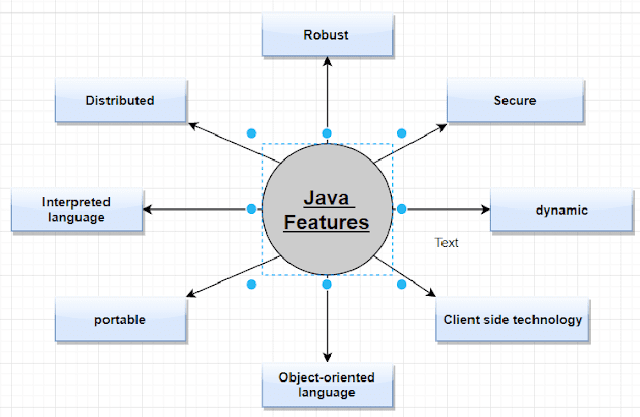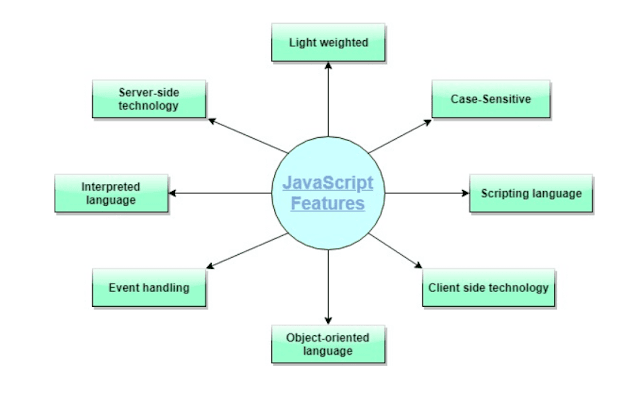Java is an object-oriented, general purpose programming language (though it is not entirely object-oriented as it contains primitive types). Java codes are platform-independent, meaning java codes can run on any platform which is supporting Java. There is no need for re-compilation of code. Java has become one of the most used languages for client-server applications. Java code are converted to bytecode which runs on the Java Virtual Machine (JVM) irrespective of the computer architecture.
Read More: 1Z0-819: Oracle Java SE 11 Developer
Java was initially developed by James Gosling. He developed it at Sun Microsystems which got later acquired by Oracle. Java was first released in 1995. The latest versions in use are java 11 and Java 12.
Features of Java
The main reason why Java came into existence was that the previously used C++ was a bit cumbersome and not very feasible for client-server applications.
Following are the features of Java:
◉ It is an object-oriented programming language which makes writing code easy.
◉ Memory allocation takes place at run-time that is why a java program can be compiled even without the main function.
◉ It is platform independent, which is one of the most significant features of Java. The Java codes are not compiled directly, they are first converted to a bytecode which can be run on any platform which has JVM.
◉ Java is an interpreted language which means that the Java code compiles and runs simultaneously.
◉ Java is widely distributed due to its platform independent nature.
What is JavaScript?
JavaScript is a scripting language. It is a high level object-oriented scripting language which is used to give instructions in run-time environment. It is interpreted language i.e. it is not compiled step by step rather than instructions are interpreted line by line. This makes JavaScript very dynamic. JavaScript is used in both client-side and server-side of web applications.
JavaScript along with the use of CSS and HTML makes websites responsive. JavaScript engines are embedded in many host services, including web servers and databases.
Features of JavaScript
◉ JavaScript is a versatile scripting language used in both server-side as well as client-side technologies.
◉ It forms basis to many web frameworks like Node.JS, Angular.JS, and React.JS etc.
◉ It is light-weighted as it can be embedded within HTML of website.
◉ It has event based approach to concurrency.
◉ JavaScript is a case-sensitive language that means, if it has two members with same name but different case, then they will be considered different and also there is a special schema for declaring variable names.
◉ It follows the object oriented paradigm.
Java vs. JavaScript
For a new programmer, both Java and JavaScript would probably look same but both of them are poles apart. Even though they share many common attributes like object-oriented paradigm, libraries and frameworks, still they are quite different when we talk in the context of their use cases.
Following are few differences between Java and JavaScript which would help you to draw a margin between the two:-
| Java | JavaScript |
| Java is strongly typed and has strict rules. Also, the variable type has to be declared before initializing the variable. | JavaScript is weakly typed and does not have strict rules. There is no need to declare the type of variable during initialization. |
| Java is an object-oriented programming language. | JavaScript is an object-oriented scripting language. |
| Java programs are platform-independent. They can run on any device having Java Virtual Machine. | JavaScript code run only on web browsers as they were developed to run only on web browsers. |
| Java objects are class-based which means you have got to make a class in order to make a program. | JavaScript objects are prototype-based. |
| Java files have a ".java" extension. These files are converted to bytecode which are executed by JVM. | JavaScript files have extension ".js". These are not compiled instead they are interpreted by the JavaScript interpreter which is present in every browser. |
| Java is a standalone language which means it does not require any other thing to be embedded in. | JavaScript is contained in web pages and is embedded in HTML content. |
| Java programs require a large amount of memory. | JavaScript is memory optimized and therefore is used in web pages. |
| When facing concurrency, then Java uses a thread-based approach to solve it. | JavaScript uses an event-based approach to tackle concurrency. |
| Java is vividly used for Android application development | JavaScript is vividly used for web development. |
Source: javatpoint.com





0 comments:
Post a Comment